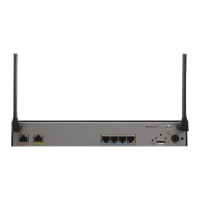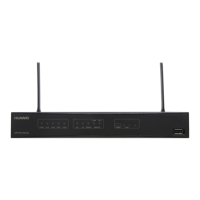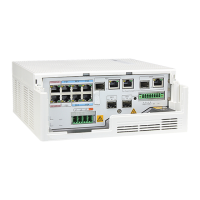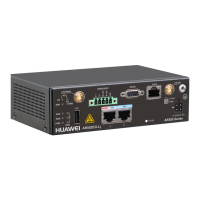7.1 SSL VPN Overview
The SSL VPN (Secure Sockets Layer VPN) technology allows employees, customers, and
partners to access the enterprise's intranet through the Internet anytime and anywhere.
As the Internet technologies develop, people can access an enterprise's internal resources
whether they are at home, at work, or on the move. Enterprise employees, customers, and partners
desire access to enterprises' intranets anywhere and anytime. Unauthorized users or insecure
access hosts may threaten security of enterprises' intranets.
Secure access VPN protects enterprises' intranets against attacks and prevents data theft.
SSL VPN is a type of secure access VPN technology. Based on the HTTPS protocol, SSL VPN
uses the data encryption, user identity authentication, and message integrity check mechanisms
of the SSL protocol to help ensure that remote access to enterprise intranets is safe and secure.
SSL VPN is a remote access technology. As shown in Figure 7-1, SSL VPN meets the following
remote access requirements:
l Dynamic remote access: Users can use any terminals to access an enterprise's intranet
through the Internet anytime and anywhere.
l Differentiated user access privileges: The SSL VPN gateway assigns different access
privileges to employees, partners, and other users on the Internet. Each user can only access
authorized resources.
l Terminals with different operating systems and application programs: Terminals running
different operating systems and application programs can access the enterprise's intranet.
Figure 7-1 Remote access
Internet
LAN
Internal servers
SSL VPN gateway
PC
Partner
Hotel
Mobile officeHome
Huawei AR1200 Series Enterprise Routers
Configuration Guide - VPN 7 SSL VPN Configuration
Issue 01 (2012-04-20) Huawei Proprietary and Confidential
Copyright © Huawei Technologies Co., Ltd.
364
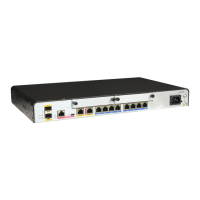
